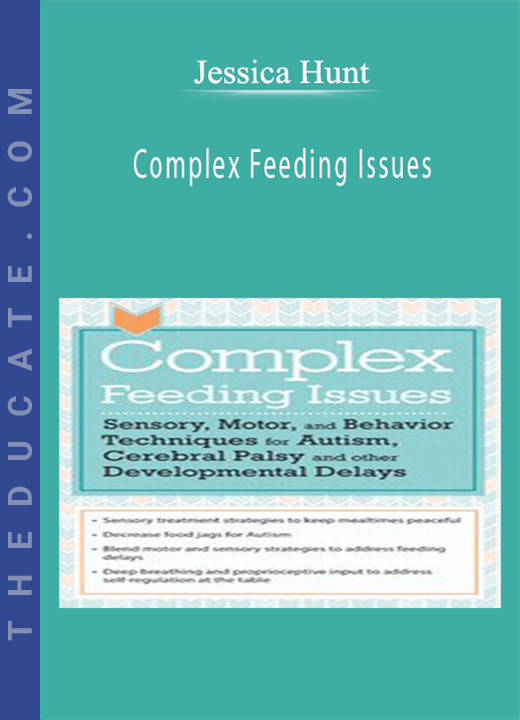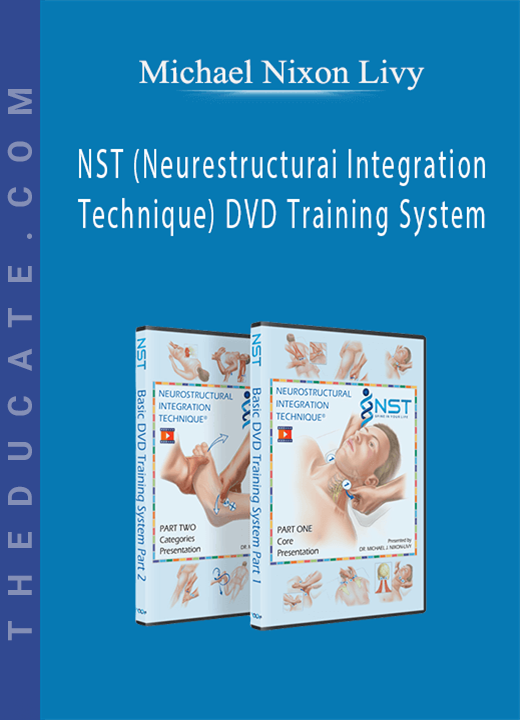Description

Complex Feeding Issues: Sensory, Motor, and Behavior Techniques for Autism, Cerebral Palsy and other Developmental Delays – Jessica Hunt
- Sensory treatment strategies to keep mealtimes peaceful
- Decrease food jags for Autism
- Blend motor and sensory strategies to address feeding delays
- Deep breathing and proprioceptive input to address self-regulation at the table
Do you work with special needs children who cry or scream, throw food, refuse to sit at a table and eat, or refuse to try new foods? Do you know children who eat only a limited number of foods or only eat the same food over and over? Is going to a restaurant out of the question for the families you work with?
Watch this recording to get the strategies you need to make mealtimes more peaceful and positive!
You will learn much more than the sensory issues causing these feeding difficulties; we will examine behavior issues as well as oral motor difficulties. Through the use of video case examples, I will show you treatment strategies, demonstrations, and hands on exercises to gain the knowledge needed to successfully treat feeding difficulties in children with Autism, Cerebral Palsy and more.
Walk away with advanced techniques to:
- Evaluate the causes of mealtime difficulties: behavior, sensory, oral motor, or a combination
- Increase range of foods, decrease food jags
- Blend motor and sensory to address feeding delays in cerebral palsy
- Increase jaw strength and decrease ineffective lip closure, or poor tongue lateralization
- Use deep breathing and proprioceptive input to address self-regulation at the table
- Develop tactile, auditory and smell to increase participation for kids w/decreased vision or cortical impairment
- Educate parents and caregivers to promote carryover at home
- Evaluate how sensory processing, behavior and oral motor skills impact or interfere with each child’s ability to eat.
- Role Play how to implement sensory techniques during and prior to meal times to address difficulties such as not wanting to touch certain foods or sitting at the table.
- Implement oral motor exercises and strategies to promote feeding patterns such as rotary chewing pattern, lip closure and tongue lateralization.
- Explore the misconceptions about feeding that impact special needs children.
- Evaluate the behaviors that interfere with eating and devise strategies to address the behavior.
- Support and guide the parents, caregivers and other family members through often emotional or stressful meal times.
- Complex Feeding Issues
- Common misconceptions explained
- Overlap of sensory processing skills, oral motor skills and behaviors
- Normal development key points
- Evaluation of Feeding Skills
- Observations: sensory or behavior responses
- Oral motor evaluation for jaw, lips, and tongue strength and range of motion for feeding
- Foods that give you information quick
- Quick sensory tasks for a sensory profile
- Case study: Putting it all together.
- Video of evaluations, and case studies
- Techniques and Treatment Strategies
- Autism
- Address food jags
- Make food fun: sticks, cubes and more to increase oral motor skills
- Address mealtime behaviors such as not sitting and throwing food
- Easy ways to regulate arousal at the table using breathing and proprioceptive input
- Systemic desensitization to address tactile over responsivity
- Video case study
- Cerebral Palsy
- Oral motor exercises to promote rotary chewing, tongue lateralization and lip closure
- Easy techniques to Increase under responsivity
- Tone management for increased range of motion in lips and cheeks
- Hand to mouth connection
- Handling and seating techniques
- Exercises to decrease tongue thrust
- Sensory input to increase oral motor muscle responsivity
- Stretching the oral facial muscle to regulate
- tone for chewing and straw drinking
- Video case examples
- Other Development Delays (Down Syndrome, Failure to Thrive, and Global Delays)
- Easy sensory techniques for children with decreased vision and cortical vision impairment
- Address cognitive delays using sensory processing and motor skills
- Oral motor exercises and “mealtime concepts” for children who do not eat by mouth
- Failure to thrive: make fun food and increase interest
- Video case examples
- Promote Carry- Over at Home
- Education of family and caregiver on complexity of feeding
- Create peaceful mealtime at home through routine
- Easy oral motor exercises during play and mealtimes
- Easy sensory activities to promote attention and regulation during mealtime
- Autism
Instant Access Available
Downloadable Content








4 reviews for Complex Feeding Issues: Sensory, Motor, and Behavior Techniques for Autism, Cerebral Palsy and other Developmental Delays – Jessica Hunt
There are no reviews yet.